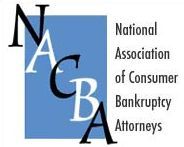Before looking into the specifics of tax refunds, keep in mind that 97% of bankruptcy cases are 'no asset cases.' This means that the filer gets to keep all of their things and the trustee takes nothing. So 97% of the time, you will be able to keep your tax refund when you are filing for bankruptcy.
Whether you have actually received your refund in hand or are still waiting on the refund, the money is still considered property of your bankruptcy estate. If you have not yet received the tax refund, you must inquire as to whether you will be able to exempt it under one of the federal or state exemption statutes. Exemption laws vary depending on whether your attorney chooses state or federal exemptions, but rest assured that your Seelinger Law bankruptcy attorney will choose the exemptions most advantageous to your situation.
In circumstances where the filer has a lot of assets and their exemptions are reaching capacity, it may be advisable to wait to file for bankruptcy until you have received your tax refund. This will give you a chance to not only receive the check but to use the money on necessary living expenses. Most people receiving tax refunds have necessary expenses that they have had to put off because the money just simply was not there.
For example, a leaky roof needs to be patched, a check engine light on a vehicle indicates time for a needed repair, new tires, and the list goes on and on. Some people will use their refund money for something as fundamental as catching up on a missed mortgage or vehicle payment. Other people use their refund to help pay their bankruptcy lawyer and filing fee so that they can get the fresh start that they need. The bottom line is that there are many necessary living expenses for people to use their tax refund money in a safe way.
Note that luxury purchases, repayment of loans to friends and family and credit card payments are not on the above list of necessary living expenses. These are not good ways to spend your tax refund. The trustee could view these transactions as bad faith or a preferential treatment of creditors.
Rest assured that Seelinger Law is confident that we will be able to protect your tax refund and still allow you to get that fresh financial start. Pre-petition asset planning is just one of the great benefits that you will get as part of your free consultation.

